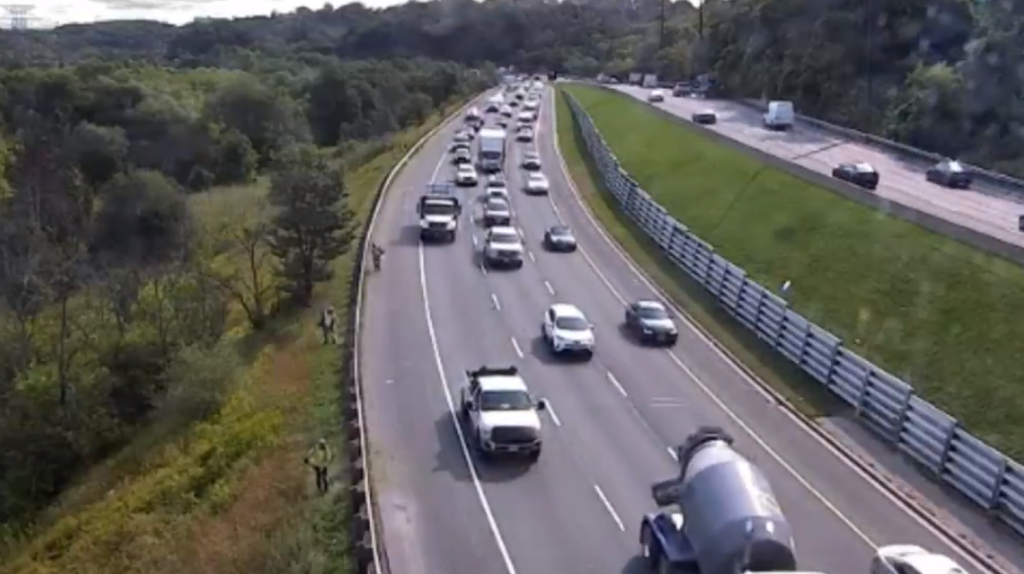Canada announces mandatory hotel quarantine for international passengers, suspends travel to Caribbean
Posted January 29, 2021 5:56 am.
Last Updated January 29, 2021 4:07 pm.
Prime Minister Justin Trudeau announced further stringent restrictions on travellers entering the country including making it mandatory for passengers to quarantine in a hotel at their own expense when they arrive in Canada.
Travellers will also be subject to a mandatory COVID-19 test upon landing.
The federal government said passengers will have to quarantine at these selected hotels until the test results come back. Trudeau says it is expected to take around three days, and cost travellers around $2,000.
RELATED: Ontario reports less than 2,000 COVID-19 cases with higher testing
Those with negative test results will be able to then quarantine for the remainder of the mandatory two weeks at home, while those with positive tests will be required to quarantine in designated government facilities.
These new measures aren’t expected to take effect for another few weeks.
“Now is just not the time to be flying,” Trudeau said Friday. “As part of this effort, the government of Canada will work with future airlines on testing and flying requirements.”
The Prime Minister said all incoming international flights will be forced to land in Vancouver, Calgary, Toronto, and Montreal.
As of Monday, Canada is also suspending all flights to the Caribbean and Mexico until April 30. In the coming weeks, non-essential travelers will also have to show a negative test before entry at the land border with the United States.
“I’d like to acknowledge the leadership of Air Canada, West Jet, Sun Wing, and Air Transat to making this commitment to suspend flights and be such strong partners in the fight to curve the spread of COVID-19 and its variants,” Trudeau said.
Trudeau has said such measures could be imposed suddenly and bluntly warned against nonessential trips abroad.
A second official said the reason for new measures is concern over new variants of the virus and said they are designed to discourage travel, especially to sunny destinations during March break.
“With the challenges we currently face with COVID-19, both here at home and abroad, we all agree that now is just not the time to be flying,” Trudeau repeated.
“By putting in place these tough measures now, we can look forward to a better time when we can all plan those vacations.”
Canada already requires those entering the country to self-isolate for 14 days and to present a negative COVID-19 test taken within three days before arrival. The suggested measure would require isolating at a hotel rather than at home.
Quebec Premier Francois Legault has been urging Ottawa to require anyone returning from abroad to quarantine for two weeks in a hotel, at their own expense.
RELATED: Province mulling over mandatory COVID-19 tests for international passengers at Pearson
Non-essential travel into Canada by most foreign nationals has been banned since the pandemic first began sweeping across the country last March. Anyone entering the country has been required to self-quarantine for two weeks.
The federal government began beefing up those measures earlier this month.
As of Jan. 7, the government has required proof of a negative COVID-19 test, taken within 72 hours of departure time, before anyone is allowed to board a flight to Canada.
The new federal measures on testing air passengers when they arrive in Canada will only be in place in "the coming weeks." Ontario isn't waiting… https://t.co/KLXRumqb7X
— Cormac Mac Sweeney (@cmaconthehill) January 29, 2021
Legault and Ontario Premier Doug Ford have urged Ottawa to impose mandatory testing upon arrival in Canada as well. And they’ve proposed a ban on flights from countries where the new, more contagious variants of the virus are circulating.
For his part, Ford announced his government is taking “immediate action” and as of Monday, all incoming international passengers will be subjected to a mandatory COVID-19 test. Additional screening efforts will go into effect on February 3.
Canada did temporarily ban flights from the United Kingdom after that country reported in December a new variant of COVID-19 that was spreading like wildfire. But the ban was lifted once the pre-departure test requirement came into effect.
On the vaccine front, Trudeau says that Canada will be getting fewer doses than expected from its next shipment of Moderna’s COVID-19 treatment.
He confirmed that Canada will receive 180,000 doses next week, which is 78 percent of what was expected.
Trudeau said Canada is still on track to receive two million doses of the Moderna vaccine before the end of March.
With files from The Canadian Press, The Associated Press, and 680 NEWS Parliament Hill reporter Cormac Mac Sweeney










